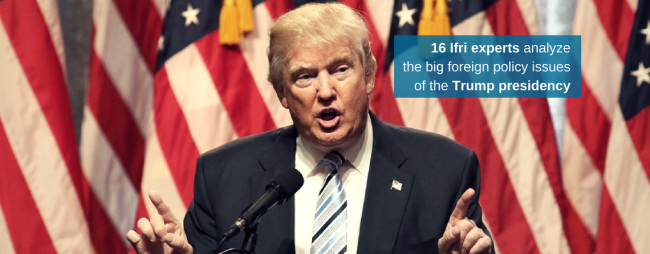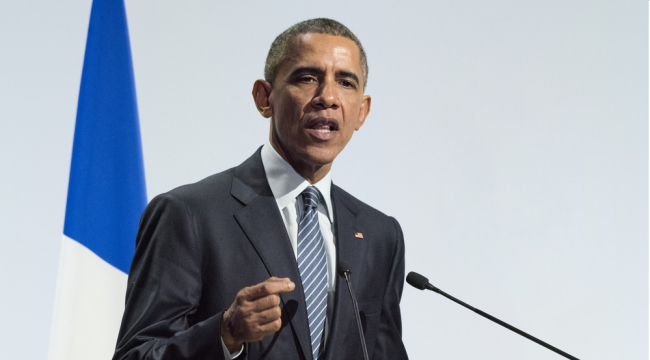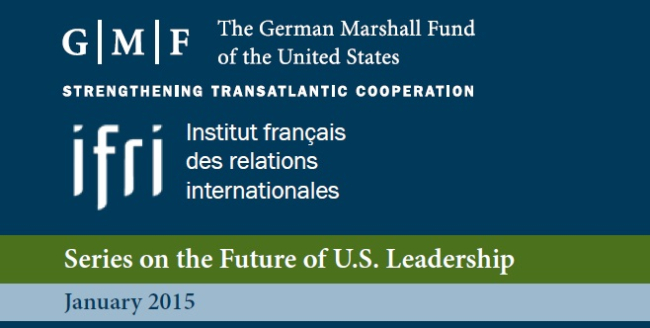U.S. Foreign Policy
Recent presidencies have sought to restructure U.S. foreign policy around opposition to China. The Biden administration is seeking to revitalize alliances (AUKUS, European Union) and manage well the crises in Ukraine and the Middle East.
Le monde selon Trump. Anticiper la nouvelle politique étrangère américaine
What will become of US foreign policy under Donald Trump? A selection of Ifri researchers has come together to offer their thoughts on this question. Our experts cover an array of topics through 14 contributions, ranging from the future Sino-American relations, through US engagement in the Middle East, to the prospects of a renewed transatlantic relationship. This analysis intends to help readers anticipate the outcomes of this election in order to facilitate decision-making.

Hillary Clinton et le leadership américain
Hillary Clinton, the frontrunner in the U.S. presidential election, has plans for American foreign policy. Clinton wants ISIS and Bashar Al-Assad out of Syria and to focus on human rights in trade negotiations with China. Now, Clinton and her campaign hope that voters will believe in her vision and her ability to make it happen.

The Middle East that Awaits a New US Administration
Along with a history marked by intervention from external powers, the Middle East is now confronting conflicts which combine political, ethnic and religious dimensions. The United States can not withdraw its “leadership” in the area. Aside from the Syrian question, the next American administration will have to redefine the network of partnerships and alliances in the region and grapple with a multitude of problems, none of which have simple solutions.
Après Paris et San Bernardino, le terrorisme dans le débat américain
Both the Paris attacks and the San Bernardino shooting reopened the wound of terrorism in the United States. Although President Obama has not shifted his stance or his strategy on the issue, public opinion is worried and populist rhetoric is ever more present in the campaign for the 2016 election.

War’s Indirection or the Return of the Limited War
Over the last few years both the United States and Russia seem to have changed their conception of how to deploy force.
Can Washington move beyond "Ukraine fatigue"?
For the past two years, the United States has been at grips with an increasingly revisionist Russia in continental Europe. The crisis in Ukraine deteriorated the state of the bilateral relationship with Moscow [1] to what could be an all-time low since the end of the Cold War [2].
U.S. Engagement Towards Central Asia: No Great Game After All?
Since the collapse of the Soviet Union in the 1990s, Washington has defined general foreign policy objectives towards the Republics of Kazakhstan, Kyrgyzstan, Tajikistan, Turkmenistan, and Uzbekistan.
Le rôle de l'Inde de Modi dans la politique américaine en Asie
As President Obama makes an official visit to India, Martin Quencez, expert from the GMF Paris office reflects on the current administration's policy toward Asia and notably the "pivot to Asia". The celebrated Indo-American relationship does not appear to have held much promise until now. Could it grow significantly during Narenda Modi's presidency to constitute a key element of the American presence in the region?
Homeland : une série de l'ère Obama
Once widely praised as one of the best shows on television, Homeland will be back for a fourth season starting next week. The show was originally intended as a breaking point with the one-sided and trigger-happy foreign policy of the Bush administration. However, Homeland is sadly turning out to be the reflection of Obama’s foreign policy, itself rather disappointing up to now. What will the new episodes tell us?
Obama at West Point
President Obama presented the case for his foreign policy last week – again. He addressed the cadet corps at West Point in what was billed as a comprehensive strategic statement for the balance of his tenure in office, and for America's future. Obama's speech came just over a week after John Kerry issued his own call for America to take a large and active role in the world — urging Americans not to "allow a hangover from the excessive interventionism of the last decade to lead now to an excess of isolationism in this decade." It set the pitch and tone for the President's address. [1]
Support independent French research
Ifri, a foundation recognized as being of public utility, relies largely on private donors – companies and individuals – to guarantee its sustainability and intellectual independence. Through their funding, donors help maintain the Institute's position among the world's leading think tanks. By benefiting from an internationally recognized network and expertise, donors refine their understanding of geopolitical risk and its consequences on global politics and the economy. In 2025, Ifri supports more than 80 French and foreign companies and organizations.











